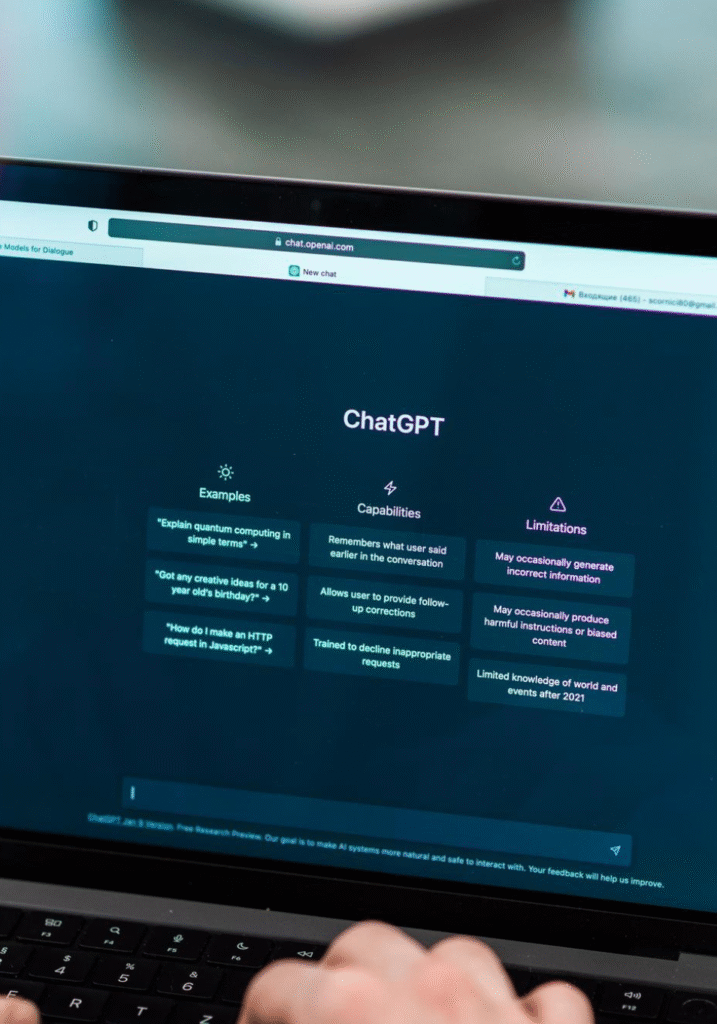Table of Contents
AI-Powered Web Design and User Experience (UX)
One of the most significant impacts of AI in web development is its ability to revolutionize web design and user experience. AI-powered design tools, such as Wix ADI (Artificial Design Intelligence) and Bookmark’s AIDA, allow developers and designers to create aesthetically appealing and functional websites without manual coding. These tools use machine learning algorithms to understand user preferences and design trends, automatically generating responsive and visually attractive websites.
Moreover, AI enhances UX by enabling personalization. AI-driven systems analyze user behavior and interactions, delivering personalized content and recommendations to each visitor. For example, e-commerce websites use AI algorithms to recommend products based on user preferences, driving conversions and improving the overall shopping experience.
AI in Web Development Automation
In modern web development, AI tools are increasingly used to automate repetitive tasks and improve efficiency. For instance, code generation tools powered by AI can help developers write code faster and with fewer errors. Tools like GitHub Copilot assist developers by suggesting code snippets in real time, streamlining the coding process.
AI also plays a critical role in testing and debugging. AI-powered testing tools can automate the testing process, detecting potential bugs, security vulnerabilities, and performance issues more accurately and faster than manual testing. This significantly reduces development time and ensures a more reliable final product.

AI for Voice Search Optimization
With the rise of virtual assistants like Siri, Google Assistant, and Alexa, voice search is becoming a key component of web development. AI-driven voice search optimization is now essential for improving website accessibility and reaching a broader audience. Websites that incorporate natural language processing (NLP) can understand and respond to voice queries, delivering more accurate search results to users.
Developers are leveraging AI to ensure websites are optimized for voice search by understanding user intent, conversational search patterns, and long-tail keywords. By integrating voice search features, businesses can enhance user engagement and stay ahead of competitors in the growing voice-first digital landscape.
AI for Enhanced SEO
Search Engine Optimization (SEO) is critical for any website’s success, and AI has become a game-changer in this area. AI-driven SEO tools analyze vast amounts of data to optimize website content, keywords, and metadata, ensuring higher rankings in search engine results. Tools like MarketMuse and Clearscope use machine learning algorithms to assess content relevance and provide actionable insights for content optimization.
Additionally, AI helps predict search engine ranking factors by analyzing search patterns, user behavior, and emerging trends. By automating keyword research, content optimization, and backlink analysis, AI enables websites to stay competitive and rank better on search engines.
AI-Driven Chatbots and Virtual Assistants
AI-powered chatbots are transforming how businesses interact with their users on websites. These intelligent bots can handle customer inquiries, process orders, and provide 24/7 support without human intervention. Using natural language processing (NLP), chatbots understand user queries and deliver accurate, real-time responses, enhancing the overall user experience.
Moreover, virtual assistants powered by AI offer personalized recommendations, help users navigate websites, and provide seamless customer service. Businesses across various industries are leveraging AI chatbots to automate customer interactions and improve satisfaction, ultimately leading to higher conversions and customer loyalty.
AI for Predictive Analytics and Data-Driven Decisions
AI’s ability to process and analyze vast amounts of data has made it a crucial tool for data-driven decision-making in web development. AI-driven predictive analytics tools help businesses gain insights into user behavior, forecast future trends, and optimize their websites accordingly. For example, e-commerce websites can use AI to predict which products users are most likely to purchase based on their browsing history.
By integrating AI-powered data analysis tools, web developers can make informed decisions on UI/UX design, content strategy, and marketing efforts, ensuring websites meet user expectations and business goals.
Conclusion: AI’s Future in Web Development
As AI technology continues to evolve, its role in web development will only grow more prominent. From automating tasks to enhancing user experiences, AI empowers developers to create smarter, more efficient websites. Whether through personalized content, chatbots, or voice search optimization, AI is revolutionizing how we design and interact with the web.
For businesses looking to stay ahead in the digital era, embracing AI in web development is no longer optional-it’s essential. By adopting AI-driven solutions, businesses can create more dynamic, user-friendly websites that cater to the ever-changing demands of the online audience.



